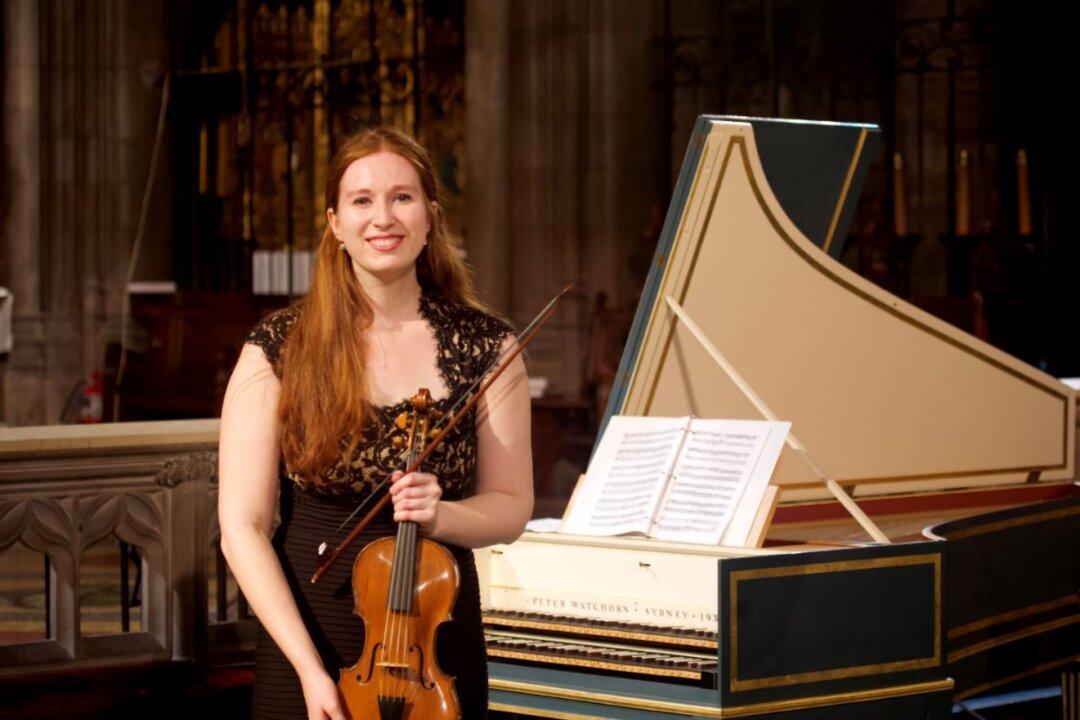NEW YORK—“I don’t think you should make it too grand of a thing,” violinist Augusta McKay Lodge says of music. “It’s too ephemeral, it’s fleeting, you’re in the moment. It’s not something that stays around.”
Just the other week she attended a contemporary concert, far from the sonic world she is usually in.






